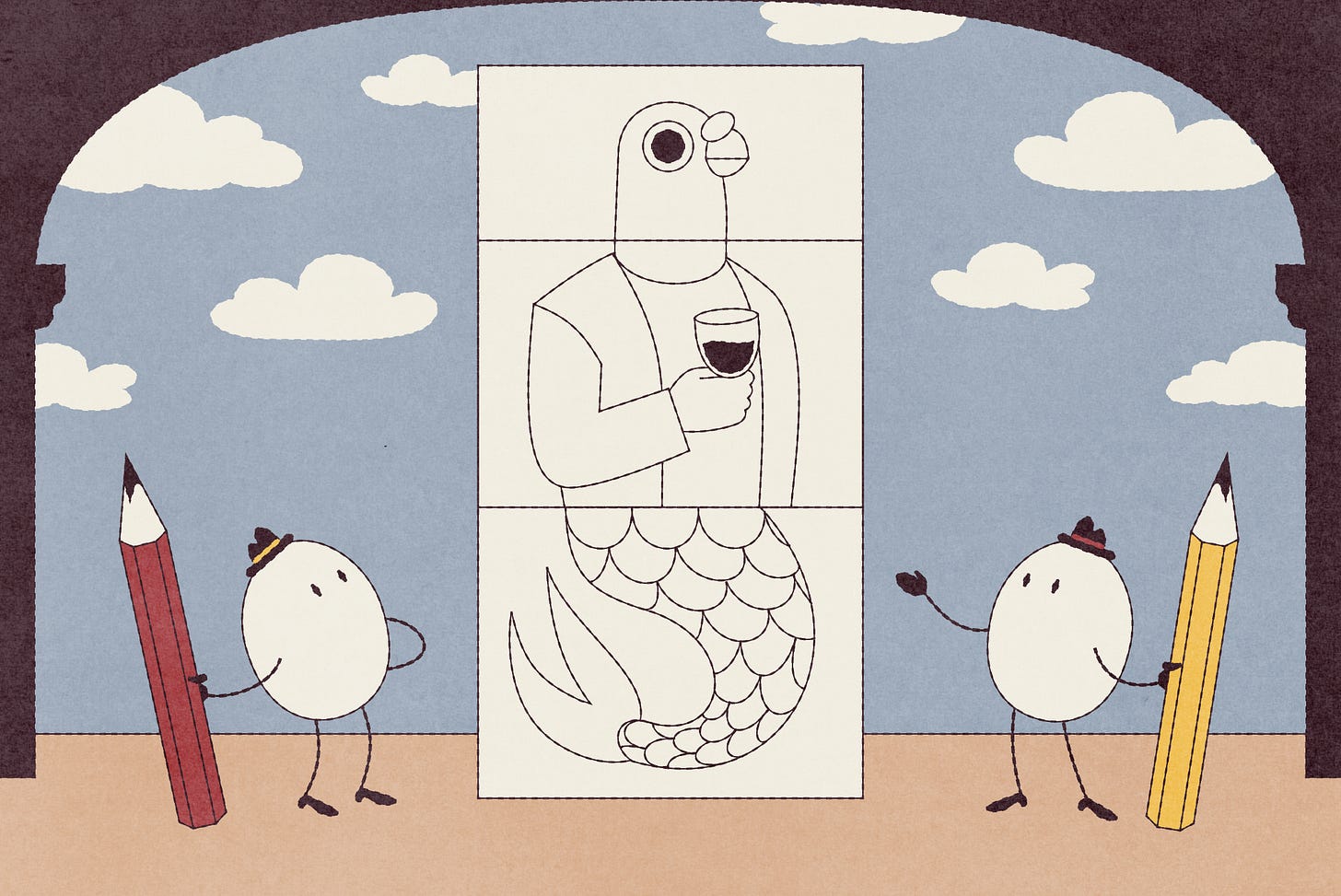The Prose Poem as an Exquisite Corpse
Lesson 2 - Prose Poetry vs Flash Fiction, Surreal vs Absurd vs Experimental vs Camp, and a few Surrealist techniques
This is Lesson 2 of 8 from Karan Kapoor’s Surrealist's Toolkit: Creating Beautiful Prose Poems from Everyday Madness. If you missed lesson 1, it’s right here.
In our first class, we delved into the origins and defining characteristics of surrealism and explored how the prose poem serves as a perfect medium for this literary movement…





